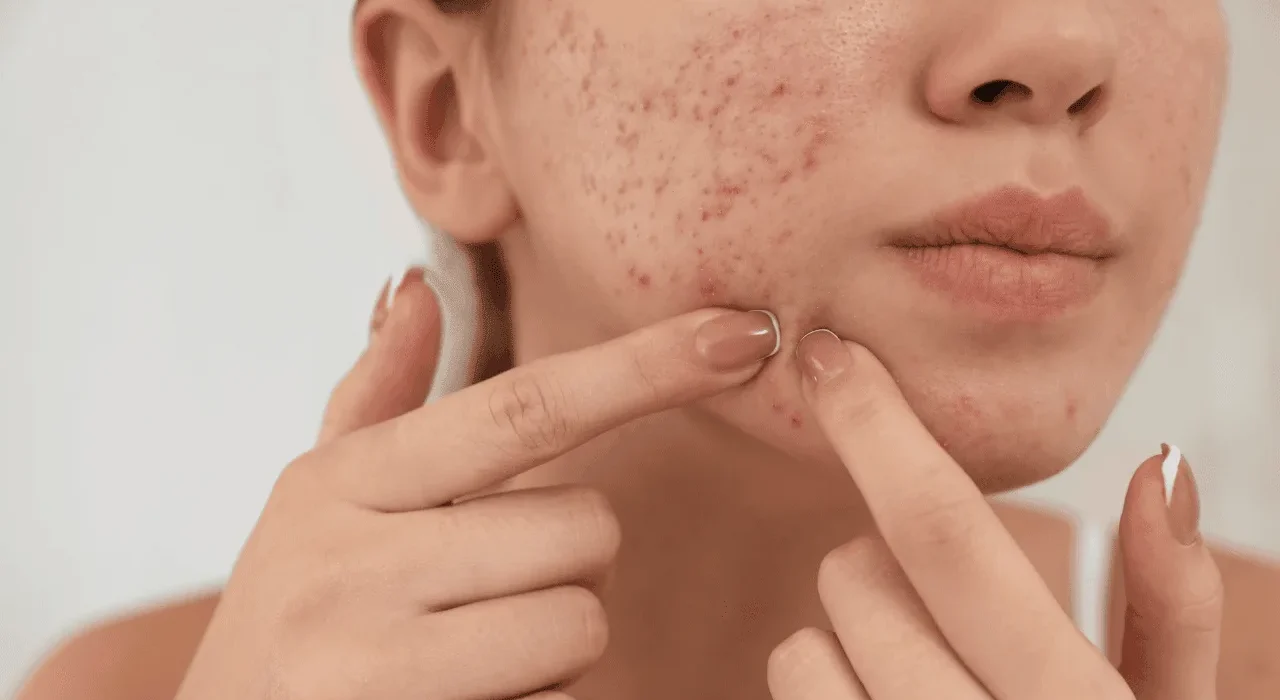What Is Acne and Why Does It Affect Some People More Than Others?
Acne is one of the most common skin conditions, affecting millions of people worldwide. From teenagers to adults, many individuals struggle with this condition, which can impact not only their physical appearance but also their confidence and self-esteem. But what exactly is acne, and why are some people more prone to it than others? Let’s dive into the details.
What Is Acne?
Acne is a skin condition that occurs when hair follicles become clogged with oil, dead skin cells, and bacteria. This leads to the formation of pimples, blackheads, whiteheads, or even cysts and nodules in more severe cases. Acne most commonly appears on the face, chest, back, and shoulders, where oil glands are most active.
The condition is primarily driven by the overproduction of sebum (oil) by the sebaceous glands. When excess oil mixes with dead skin cells, it clogs the pores, creating an environment where bacteria like Propionibacterium acnes can thrive. This causes inflammation and the visible signs of acne.
Also read:- Common Skin Disorders | Causes, Symptoms & Treatment
Types of Acne
Understanding the different types of acne can help in identifying and managing the condition effectively:
- Blackheads: Open pores clogged with oil and dead skin, appearing dark due to oxidation.
- Whiteheads: Closed pores clogged with oil and dead skin cells.
- Papules: Small, red, and inflamed bumps.
- Pustules: Pimples containing pus at the tip.
- Nodules: Large, painful lumps under the skin.
- Cysts: Deep, pus-filled, and often painful lumps that can lead to scarring.
Also read:- Psoriasis: Causes, Symptoms, and Treatment Options
Why Does Acne Affect Some People More Than Others?
Acne doesn’t impact everyone equally. Several factors determine its prevalence and severity:
1. Hormonal Changes
Hormones play a significant role in acne development. During puberty, the body produces more androgens, which stimulate the sebaceous glands to produce excess oil. Hormonal fluctuations during menstruation, pregnancy, or conditions like polycystic ovary syndrome (PCOS) can also trigger acne.
2. Genetics
Genetics significantly influence acne susceptibility. If your parents had acne, you’re more likely to experience it as well. Genetic factors determine how much oil your skin produces and how your immune system responds to acne-causing bacteria.
3. Skin Type
People with oily skin are more prone to acne because their sebaceous glands produce more oil, which can clog pores. Conversely, those with dry or combination skin may experience fewer breakouts.
4. Lifestyle and Diet
Lifestyle choices, such as skincare routines, hygiene, and diet, can affect acne. Consuming high-glycemic foods (like sugary snacks and processed carbs) and dairy products has been linked to increased breakouts. Additionally, stress can worsen acne by triggering hormonal imbalances.
5. Environmental Factors
Pollution, humidity, and exposure to harsh chemicals or skincare products can irritate the skin, leading to acne. Wearing heavy makeup or using oil-based skincare products can also clog pores, exacerbating the problem.
6. Medications
Certain medications, such as steroids, lithium, or drugs containing testosterone, can contribute to acne.
Also read:-What Is Eczema and Why Does It Affect Some People More Than Others?
How to Manage and Prevent Acne
While acne can be frustrating, it’s manageable with the right approach. Here are some tips to reduce breakouts:
- Maintain a Consistent Skincare Routine: Cleanse your face twice daily with a gentle cleanser to remove excess oil and dirt. Use non-comedogenic moisturizers and sunscreens.
- Avoid Touching Your Face: Hands carry bacteria that can worsen acne. Resist the urge to pick or pop pimples, as this can lead to scarring.
- Watch Your Diet: Opt for a balanced diet rich in fruits, vegetables, and whole grains. Limit high-glycemic and dairy products.
- Manage Stress: Practice relaxation techniques like yoga, meditation, or exercise to reduce stress levels.
- Consult a Dermatologist: For persistent or severe acne, seek professional advice. Treatments like topical retinoids, benzoyl peroxide, antibiotics, or hormonal therapy can help.
Conclusion
Acne is a complex condition influenced by a combination of factors, including hormones, genetics, lifestyle, and environment. Understanding these underlying causes can help you take proactive steps to manage and prevent breakouts. Remember, while acne may be common, it’s also treatable. With the right care and guidance, you can achieve healthier, clearer skin.
If acne is affecting your confidence or quality of life, don’t hesitate to seek help from a dermatologist. Everyone’s skin is unique, and finding the right treatment plan tailored to your needs can make all the difference.


